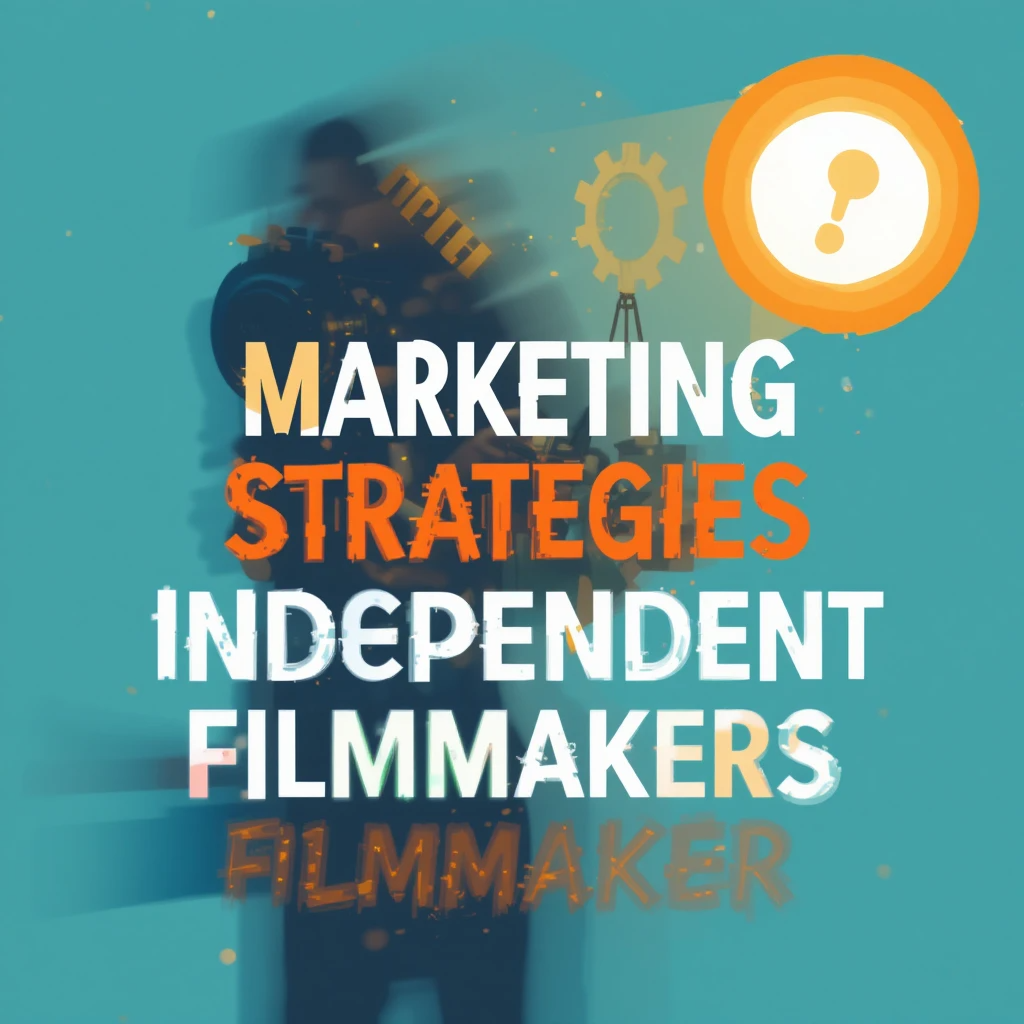Marketing Strategies for Independent Filmmakers

Strong 8k brings an ultra-HD IPTV experience to your living room and your pocket.
In the ever-evolving world of film, independent filmmakers face a unique challenge—creating powerful, engaging stories on a limited budget while competing for attention in an oversaturated digital world. Big studios have massive marketing budgets, but for indie creators, smart, strategic promotion is key to success.
Whether you're working on a short film, a feature, or a docuseries, your film won’t succeed without an audience. That’s where marketing comes in. In this article, we’ll explore effective and budget-friendly marketing strategies that independent filmmakers can use in 2025 to promote their work and build loyal fanbases.
1. Start Early—Build Buzz from Pre-Production
Marketing shouldn’t begin after your film is complete. The earlier you start, the better. Use the pre-production phase to introduce your film to the world.
Create and share concept art, casting announcements, location scouting, and even sneak peeks at your script. These behind-the-scenes glimpses generate curiosity and make people feel invested in your project before it hits the screen.
Tip: Use platforms like Instagram, TikTok, and Facebook to document your journey. Social media stories, short videos, and photo updates can keep your followers engaged throughout the entire process.
2. Know Your Audience
Before promoting your film, define your target audience. Ask yourself:
- Who is likely to watch your film?
- What platforms do they use?
- What kind of content do they engage with?
If you’re creating a horror film, you’ll want to connect with horror fan communities on Reddit or Discord. If it’s a romantic drama, you might look at Instagram pages or blogs that cater to emotional storytelling.
Tailoring your message to your ideal audience helps you avoid wasting time and resources on outreach that won’t convert.
3. Build a Strong Online Presence
Your film needs a digital home. That could be a website, a dedicated landing page, or even a blog.
What your website should include:
- A compelling trailer
- Synopsis of the film
- Cast and crew bios
- Social media links
- Email subscription option
- Press kit (high-res photos, logos, and a director’s statement)
- Make sure your website is optimized for mobile and uses basic SEO practices so people can find you on Google. Don’t forget to add a blog section where you can post production updates, festival announcements, and personal notes from the team.
4. Use Email Marketing to Build a Loyal Audience
Even in the age of social media, email marketing remains one of the most effective ways to stay connected with your audience.
Start building an email list early. Offer incentives like exclusive behind-the-scenes content or early access to your trailer in exchange for sign-ups.
Send regular, non-spammy updates about your film’s progress, screening dates, or crowdfunding campaigns. Platforms like Mailchimp and ConvertKit offer free plans that are perfect for indie creators.
5. Harness the Power of Social Media Influencers
Collaborating with niche influencers can give your film a major boost. Film reviewers, YouTubers, Instagram creators, and TikTokers in your genre can amplify your reach significantly.
Send them an exclusive look at your trailer or a digital screener of your film. In exchange, ask for a review or feature. Influencer marketing doesn’t always require money—sometimes, access to content or simple cross-promotion is enough.
6. Crowdfunding as a Marketing Tool
Crowdfunding isn’t just about raising money—it’s about creating a community. Platforms like Kickstarter, Seed&Spark, and Indiegogo help you build an audience while you fund your film.
The key is to treat your campaign like a product launch:
- Create a compelling video pitch
- Offer creative rewards (credits in the film, exclusive merch, etc.)
- Promote heavily on social media and email
Engaging storytelling during the campaign can help generate buzz that lasts well after funding is complete.
7. Submit to Film Festivals
Getting into the right film festivals can open the doors to new audiences, distributors, and media exposure. Sites like FilmFreeway make it easy to submit your film to hundreds of festivals worldwide.
Choose festivals that fit your film’s style, theme, and budget. If accepted, leverage the recognition by:
- Adding festival laurels to your posters and trailers
- Sharing the news across social media
- Reaching out to press outlets with the update
Every festival appearance is a chance to extend your film’s reach.
8. Use Storyboard Tools to Plan Marketing Assets
Before you begin production, you’ll need a visual plan—not just for your film, but also for promotional materials like trailers, posters, and social content.
That’s where storyboard tools come in. With the rise of AI in filmmaking, you can now use smart platforms to generate storyboards with just a script or scene outline. One tool to explore is the best AI storyboard generator, which helps filmmakers visualize scenes and plan marketing visuals without needing a graphic design background.
It saves time, ensures consistency, and helps align your creative vision with your promotional content.
9. Run Targeted Ads (Even with a Small Budget)
You don’t need a Hollywood-sized budget to run ads. Platforms like Facebook, Instagram, and YouTube let you run highly targeted campaigns for as little as $5 a day.
Tips for effective ads:
- Use your trailer or teaser clips
- Target by interests (e.g., horror fans, indie film lovers)
- Use geo-targeting for local screenings or festival appearances
- Test different ad copies to see what performs best
10. Engage with Film Communities
Join online communities where filmmakers and film lovers gather. Reddit has subreddits like r/Filmmakers and r/TrueFilm. Facebook has groups dedicated to indie film promotion.
Use these spaces not to spam links but to contribute meaningful discussions. Share your experiences, ask for feedback, and build relationships. When you eventually share your project, you’ll have earned the trust of the community.
11. Plan for Distribution
Think beyond just making the film—where and how will people watch it?
Options include
- YouTube Premiere (great for free distribution and monetization)
- Vimeo On Demand (for pay-per-view)
- Amazon Prime Video (requires a bit more setup but offers wide exposure)
- Filmhub (helps you get your film on platforms like Tubi, Pluto TV, etc.)
Make sure you promote your distribution channels ahead of time so viewers know where to find your film once it’s live.
Final Thoughts
Marketing your independent film may seem overwhelming at first, but it’s absolutely possible—even with limited resources. The key is to start early, stay consistent, and think creatively.
By combining the power of social media, email marketing, storytelling, and smart tools like the best AI storyboard generator, you can build a solid fan base, attract festival attention, and maybe even catch the eye of distributors or investors.
Note: IndiBlogHub features both user-submitted and editorial content. We do not verify third-party contributions. Read our Disclaimer and Privacy Policyfor details.



